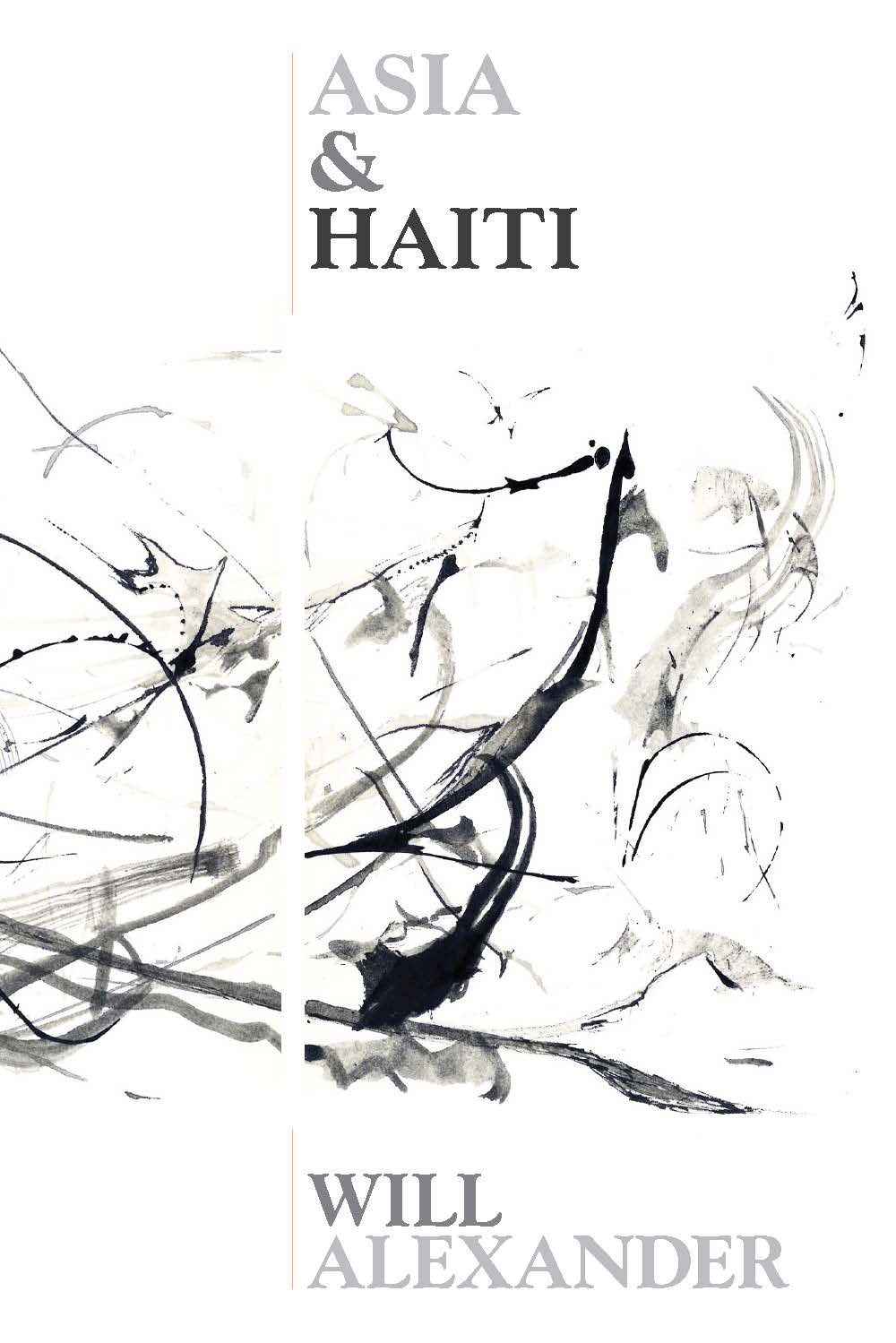In Asia & Haiti, Will Alexander’s poetry functions as syncretic engine—combusting indigenous history, esoterica, and spiritual practice, with postcolonial criticism, political theory, and modern science—to generate a densely woven re-visioning of history. This 30th-anniversary second edition re-presents a classic book with new artwork by Alexander’s longtime collaborator, Byron Baker. It also includes a new preface by the author contextualizing the work within the present-day Tibetan liberation struggle and considerations of Haiti as a powerful symbol of resistance vis-à-vis “our contemporary political un-settlement.” “Asia & Haiti,” he writes, “takes up the tenor of continuing solar presence… far beyond calculable political fatigue, being alive as grammar via a living future.”
Will Alexander
Praise for Asia & Haiti
Asia & Haiti presents two long poems by Los Angeles poet Will Alexander, which, in the broadest sense, are about the cultures, economics, politics, history, and social concerns of the title regions. But Alexander’s poetry, densely imagistic and fiercely intelligent, takes these concerns into arpeggios of linguistic realms. Alexander’s poetry presents a remarkable re-writing of a history. Caught up in the vortex of a surrealistic vision and tornadoes of language, his words call up an American equivalent of Aimé Césaire.
— Douglas Messerli
Publisher of the First Edition (Sun & Moon Books 1995)


Published together as a book titled Asia & Haiti, the two poems “Asia” and “Haiti” exist in a kind of dialogic or interactive relationship to each other, so that together they imply a more comprehensive statement about…the current situation of oppressed peoples globally… In Asia & Haiti, the overlap of geopolitical and spiritual worlds, along with the scatological, pornographic, and surrealistic imagery, creates a critical dissonance in these vitriolic poems.
Harryette Mullen, “A Collective Force of Burning Ink”, Callaloo (Vol. 22, No. 2 (Spring, 1999).